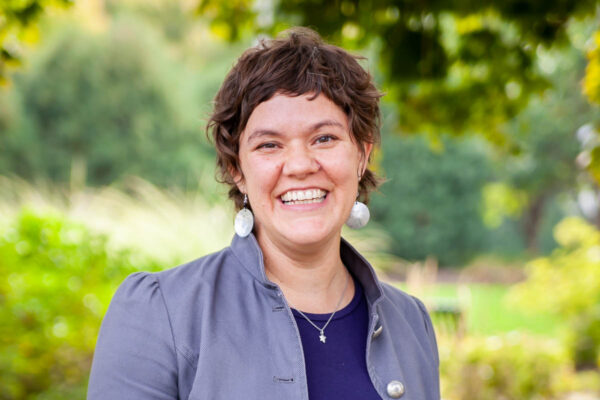Skin color
Race is in the news, and not for the first time in human history. All of us wrestle with, or should at least contemplate, what it means to be clothed in a skin color we did not choose for ourselves. The reason to wrestle is for the sake of gaining deep perspective on some of the cultural norms we often take for granted. In other words, what worlds do we inhabit, and what comforts or discomforts do we experience, just by virtue of the appearance given us at birth? There is additional value in thinking about what it means to be white, yellow, brown, or some mixture of the above. We get to try and comprehend the circumstances of others who are born differently. I say “get to” because this kind of empathy, or feeling for what it means to walk in the shoes of another, strikes me as a privilege in living the Christian life thoughtfully.
So let’s eavesdrop on the life and testimony of Brian Crooks, a 31-year-old African-American of Naperville, Illinois – a largely white community where the median family income is $128,000. He first became aware of his blackness around six- or seven-years-old. “We went on a field trip to a water park one time. One of the other boys from the day came up to me and told me he was surprised I was going on the trip because his dad told him all colored people were afraid of the water since we sink to the bottom. He didn’t know he was being offensive. He was just curious why someone who would sink to the bottom would want to go to a water park.”
In elementary school, Brian was part of a gifted program where the class project had to do with the Middle Ages. “All of the groups broke off to divvy up the work when my teacher came over to my group. Wouldn’t it be ‘easier’ and more fun for me if my group did our presentation as a rap? I’m eight-years-old,” he now exclaims in disbelief.
Throughout the elementary and middle school years, where Brian was the sole black kid, he cannot recall how many times kids asked to touch his hair. “I’m not kidding when I say it happened pretty much once a week at least. At first, it didn’t bother me. But eventually I felt like an exhibit in a petting zoo.”
“My least favorite time of the year, every year, was February. Black History Month. Being the only black kid in the class, I was the designated reader for the entire month … history books about slavery. Having an entire classroom of white kids stare at me while I explained what lynching and Black Codes were was pretty mortifying.”
His first real girlfriend came along at age 15. When her father found out Brian was black, he ordered them to break up. “So, my first heartbreak came as a direct result of racism.” “I got pulled over a lot in high school. Like, a lot a lot. I had a Mazda of my own. I spent a ton of money on my car and was especially aware of its appearance. You can understand, then, why it was weird that I was routinely pulled over for a busted taillight.”
He was searched regularly for drugs on these traffic stops. “I didn’t have a drop of alcohol until I was 21, but by that point I was an expert at Breathalyzers and field sobriety tests. On occasion the officer was polite. But usually, they walked up with their hand on their gun and talked to me like I’d been found guilty of a grisly homicide earlier in the day.”
“I could tell you about the time I gave my floor mate a haircut freshman year (at the University of Iowa) and he ‘thanked’ me by saying he’d let a Negro cut his hair any day of the week. I could tell you about leaving a bar heartbroken and fighting tears when the Trayvon Martin verdict came out only to see a couple middle-aged white guys high-fiving and saying he ‘got what he deserved’ right outside.”
I could share sadder stories from Brian’s life. But you get the idea. He lives with realities he never asked for, doesn’t deserve, can’t quite believe, but that all stem from a skin color he didn’t choose. He obviously thinks about that skin color every day. For others of us born white, our assignment should be to do similarly reflective work. Learning how we so naturally view our whiteness as “normal humanity” – the template from which other people are judged to be different and thus non-normal – would go a long way to growth in empathy.
–Peter W. Marty, senior pastor




